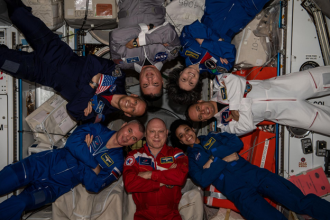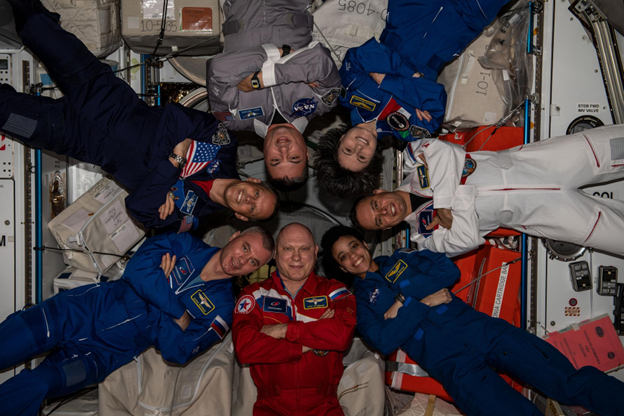Media release
From:
Composing crews for Mars missions
Team diversity may foster resilience during extended space missions
Simulation results highlight how team composition shapes stress, health, performance, and cohesion in long-duration space missions, according to a study published October 8, 2025, in the open-access journal PLOS One by Iser Pena and Hao Chen of the Stevens Institute of Technology, U.S. In particular, team diversity in personality traits may contribute to greater resilience under extended isolation and operational load.
Missions to Mars are expected to last up to three years, putting astronauts at risk of cumulative stress resulting from prolonged confinement in limited living spaces and heightened responsibility. The absence of personal space and privacy exacerbates stress levels, potentially affecting team cohesion and performance. Understanding and optimizing team dynamics under these extreme conditions is crucial, as effective collaboration, stress management, and psychological support systems are essential for the success of long-duration space missions. With NASA’s Artemis missions now underway and crewed Mars missions becoming increasingly concrete, there is a timely and critical need to develop predictive tools capable of assessing and optimizing team composition, psychological resilience, and operational effectiveness under realistic, Mars-like conditions.
To address this need, Pena and Chen modeled how personality traits influence stress responses and resilience across long-duration missions. The researchers integrated psychological theories with agent-based modeling (ABM) to simulate the impact of team composition over a 500-day Mars mission. ABM is a computational methodology that simulates the actions, interactions, and decision-making processes of autonomous agents within a defined environment. It offers a framework for linking micro-level variation among individuals to emergent team-level outcomes across time. Using ABM, the researchers examined how five personality traits – openness, conscientiousness, neuroticism, extraversion, and agreeableness – interact with various roles (e.g., engineer, medic, pilot) and skills to impact the stress, health, performance, and cohesion of teams.
In the scenarios examined, heterogeneous teams generally demonstrated better outcomes than homogeneous teams, indicating that personality and skill diversity may support team resilience under sustained operational demands. Teams with variation in personality traits—particularly those combining high conscientiousness with low neuroticism, or high extraversion with high agreeableness—showed lower stress levels and improved performance, cohesion, and health outcomes. These patterns suggest that a broader mix of coping styles and interpersonal dynamics might help teams maintain stability over time.
As noted by the authors, this study has several modeling limitations that should inform future extensions. For example, personality traits were assumed to remain fixed, omitting possible adaptation over time. Despite these limitations, the results may inform future crew design strategies for long-duration space missions. Incorporating personality assessments into selection processes, and deliberately composing teams with complementary psychological and functional profiles, could improve cohesion, stress regulation, and operational stability in isolated, high-demand environments.
The authors add: “For the first time, we’ve combined psychological insights with a computer simulation to model a 500-day mission to Mars.”
“This new approach lets us explore how different astronaut personalities and team roles might affect a crew’s stress and performance, and it gives us a glimpse of the human challenges astronauts could face on these long journeys into deep space.”
Multimedia




 International
International



